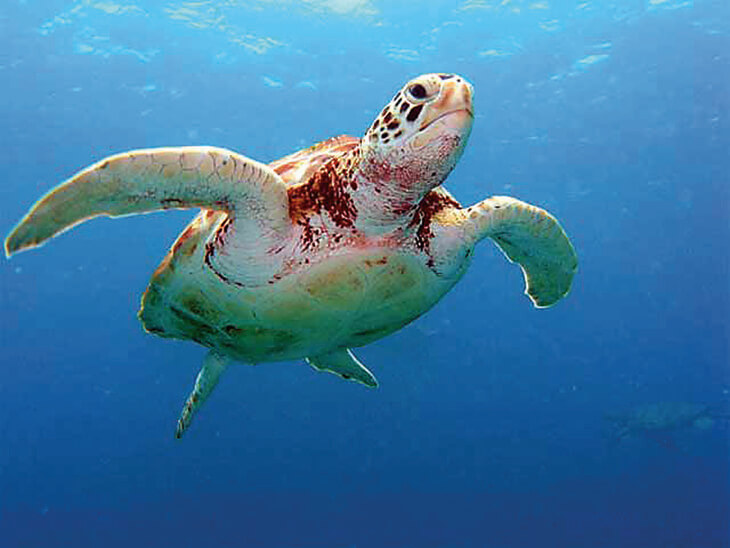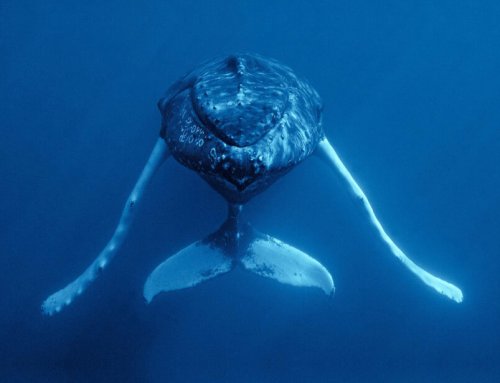Do You Know…That Bermuda Passed the New World’s First Conservation Legislation? by Horst Augustinovic
The first book about Bermuda was written in 1610 by Sylvester Jordain, one of the survivors of the ‘Sea Venture’. It includes the following descriptions about the abundant wildlife they found on their arrival on the island:
“Wherefore my opinion sincerely of this Iland is, that whereas it hath beene, and is still accounted, the most dangerous, infortunate, and most forlorne place of the world, it is in truth the richest, healthfullest, and pleasing land…”
“Sir George Sommers … found out sufficient of many kind of fishes, and so plentyfull thereof, that in halfe an houre he took so many great fishes with hookes, as did suffice the whole company one day. These fishes are very fat and sweete, and of that proportion and bignesse, that three of them will conueniently lade two men: those we called rock-fish. Besides there are such abundance of Mullets, that with a seane might be taken at one draught one thousand at the least…”
“The Countrie affordeth great abundance of Hogges, as that there hath beene taken by Sir George Sommers, who was the first that hunted for them, to the number of two and thirty at one time…”
“There is Fowle in great number vpon the Ilands, where they breed, that there hath beene taken in two or three houres, a thousand at the least; the bird being of the bignes of a good Pidgeon, and layeth egges as big as Hen egges vpon the sand, where they come and lay them dayly, although men sit downe amongst them…”
“Another Sea fowle there is that lyeth in little holes in the ground, like vnto a cony-hole, and are in great numbers, exceeding good meate, very fat and sweet (those we had in the winter) and their eggs are white, and of that bignesse, that they are not to be knowne from Hen egges.”
“There are also great store of Tortoses, (which some call Turtles) and those so great, that I haue seene a bushel of egges in one of their bellies, which are sweeter then any Henne egge: and the Tortose it selfe is all very good meate, and yeeldeth great store of oyle, which is as sweete as any butter; and one of them will suffice fifty men a meale, at the least: and of these hath beene taken great store, with two boates, at the least forty in one day.”
“There are also great Plentie of Whales, which I conceaue are verie easie to be killed, for they come so vsually, and ordinarily to the shore, that we heard them oftentimes in the night a bed; and haue seene many of them neare the shoare, in the day time.”
Within only a few short years the early settlers had so depleted certain species, that in 1620 an Act was passed against the killing of young turtles. This is considered to be the New World’s earliest written conservation legislation. Unfortunately the settlers did not know that sea turtles take up to 50 years to mature.
An act against the killinge of ouer young Tortoyses:
In regard that much waste and abuse hath been offered and yet is by sundrye lewd and impvident psons inhabitinge wthin these Islands who in there continuall goinges out to sea for fish doe upon all occasions, And at all tymes as they can meete with them, snatch & catch up indifferentlye all kinds of Tortoyses both yonge & old little and greate and soe kill carrye awaye and devoure them to the much decay of the breed of so excellent a fishe the daylye skarringe of them from of our shores and the danger of an utter distroyinge and losse of them.
It is therefore enacted by the Authoritie of this present Assembly That from hence forward noe manner of pson or psons of what degree or condition soeuer he be inhabitinge or remaining at any time wthin these Islands shall pesume to kill or cause to be killed in any Bay Sound Harbor or any other place out to Sea: being wthin five leagues round about of those Islands any young Tortoyses that are or shall not be found to be Eighteen inches in the Breadth or Dyameter and that upon the penaltye for euerye such offence of the fforfeyture of fifteen pounds of Tobacco whereof the one half is to be bestowed in publique uses the other upon the Informer.






